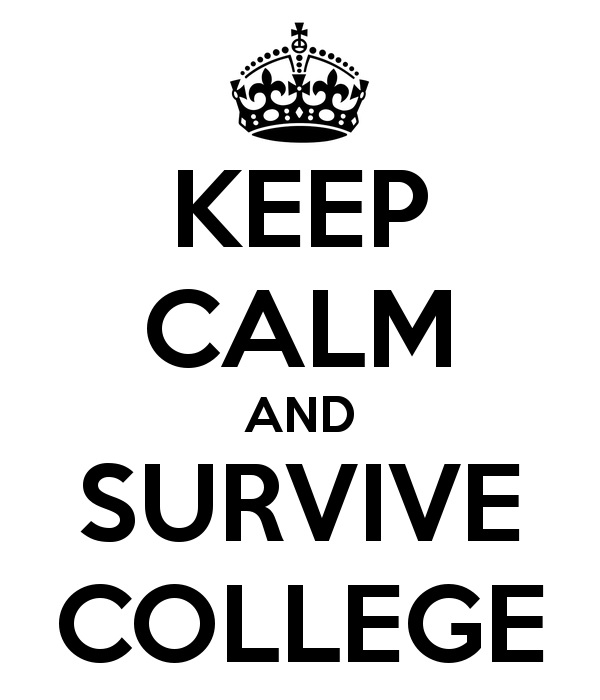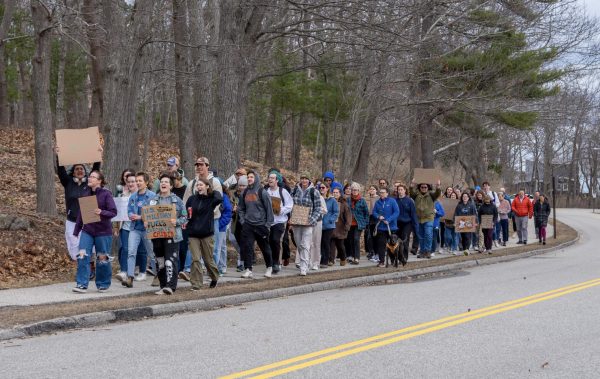A Guide to Surviving UNE

Dear first years, sophomores, juniors, and maybe even seniors,
I am graduating soon. Very soon. So soon that I’m scared, but also super excited!
And before I go, I want to pass down my UNE wisdom to all the students that may need a little bit of help.
So here is a guide to surviving UNE…
10. Get Grammarly.
You see the commercials all the time but when I finally gave it a try the grades on my papers improved from 80% to 100% overnight. No, really! When you finish a paper, put it into Grammarly and it will check for those errors Microsoft Word doesn’t see. It also has a Google Doc extension that will make you the best editor in any group project 😉 Go pro if you feel you really need the help. It gives you the chance to check for plagiarism and helps you reword awkward sentence structure. The extension comes in handy most when writing annotated bibliographies and research papers. Not to sound like the ad, but, it’s super easy to get, free, and makes a world of difference for your GPA.
9. Go to SASC.
Even before you start struggling, go to SASC just to check up on your knowledge. No one is going to judge you for asking for help, college is HARD! Being ahead on studying pays off in ways you can’t imagine. Late night cramming sucks, but SASC can help make you more prepared so you don’t have to suffer… as much. I went to every tutoring session for Patho and Neuro that was available and I found those two extremely challenging classes less of a nightmare than anatomy (when I had only been going to SASC once a week). Don’t get behind because it’s hard to catch up. The student tutors are very good at what they do and they will give it their all to see you succeed.
8. Friends sometimes don’t make the best roommates.
Living with people is hard, sometimes rooming with best friends can be even harder. Two people can get along through thick and thin but stick them in a shared living space and the world falls to pieces. It’s not become the friendship isn’t right, it’s because we all come from different walks of life and different habits tend to clash. The best way to avoid this is to keep your distance when needed, don’t let issues pile up inside, and have your own thing aside of your roommates and friend group. When you spend every second together in class, in clubs, in the room, and during your downtime, there are bound to be more conflicts than when you two were both just friends. When you have something you can do by yourself or with a fresh new crowd, it can ease the tension of roommates. But if things are so out of hand and you really aren’t comfortable where you live, talk to your RA or AC. They sometimes can help.
7. Plan classes efficiently.
When planning classes, especially freshmen year, save your electives and non-core classes for when you’re a senior, it helps relieve the stress of applying to grad school and looking for a job. My freshmen year I took as many core classes as I could, it was basically all the 101 classes in one semester. This allowed me to take less time demanding courses when I was struggling in the heavier sciences further in my college career. I played my electives just right that I am able to graduate a semester less than most students else because I took some of the classes online through StraighterLine. I got to do the Disney College Program because I prioritized the classes required for my major. It all works out in the end, I just made sure I had a well-balanced schedule every year.
6. It’s okay to get to know your professors.
They are people too and they (usually) love getting to know their students. I strive to get to know my professors personally so that when I reach out to them with a question or for help via email they know who I am. It also helps for later along the line when you need a letter of personal recommendation. One time I did really poorly on an exam and went to see the teacher about it. When we were going over the answers she noticed I had been given the wrong version of the exam! So we went through the questions I answered and my graded improved substantially. It paid off to know my professor and be comfortable enough to talk to her. Also, most of the teachers at UNE are really cool and worth getting it to know.
5. Always have a backup plan.
College is gonna be filled with ups and downs, and life after college can be unpredictable. So have a backup plan, just in case. Whether it’s applying to go a safety grad school or sending your resume to a few extra jobs, never put all your eggs in one basket. This also applies to classes, you might not get into the one you want, so have a second one picked out with the code maximum efficiency. Every second count during registration. Being a little extra prepared goes a long way, it’s easy and it’s extra reassurance you will have a plan if the first one fails.
4. Utilize all the things the school gives you for free or discounted.
Have you been to the box office lately? Free rock climbing, movie rentals, and discounted tickets to so many places. Use them! When in life are we going to get a chance to do these things this cheap? I regret having waited until senior year to start looking around and seeing all the thing I could get from this school. I wish I started rock climbing as a freshman so bad, but I kept telling myself I have so much time left to do it. But now that time is almost gone. On another note, if you’re not using career services at least once a semester to check up on your resume, cover letter, and interviewing techniques, you’re doing something wrong.
3. Be involved!
Try to join as many clubs as you can but stay in the ones with the people you enjoy being around. Joining a club is the best wait to find your place on campus. I was really lost until I got connected. My best advice is to join as many as I can, see how you like each one, and stay with the people you enjoy being around the most. I joined a lot of clubs and realized the type of people I most liked being with were APB, Anime club, Surfing Club, and Cheerleading. I wish I tried harder to be more involved in those clubs as a freshman instead of waiting until the sophomore year to find my place. Be outgoing and make the most of your time here.
2. Be friendly.
Make as many friends as possible and try to get to know everyone you sit next to. Connection is a huge part of finding joy where you live. Even if you know you won’t ever talk to the person again, it’s always nice to have made a positive lasting impression on another person. I am terrible with names and faces, but I strive to make one new friend every semester. I enjoy walking between classes and waving hello to the people I recognize when I walk by. This school is small, and I feel like campus is a brighter place when those who are here are welcoming.
1. Advocate for yourself.
I cannot stress this one enough. As students, we don’t see ourselves having a whole lot of power. However, we have even more than we know when we stand together to speak up! Instead of accepting the challenges the school throws at us and letting our chances to make change pass by, we need to try harder as a community to show the school we demand to be heard. The students are the reason this college exists, so if our opinions are not taken into consideration and we are not understood, we can speak louder. There are so many on this campus that will support our voices, but we need to be the ones to advocate. As a writer for Nor’easter News, I feel I was able to make some adjustments on campus. I used the media platform and students listened. Facility listened. Change happened. If, for some reason, you don’t like something, do something. For the next four year, two years, six semesters or last weeks, think about what you want to see change on campus. Think about the impact you could create for future students and all your fellow classmates. Being your own advocate means more than just helping yourself, you would be bettering the university itself. It’s okay to speak up for what you believe in. It’s okay to expect change.













